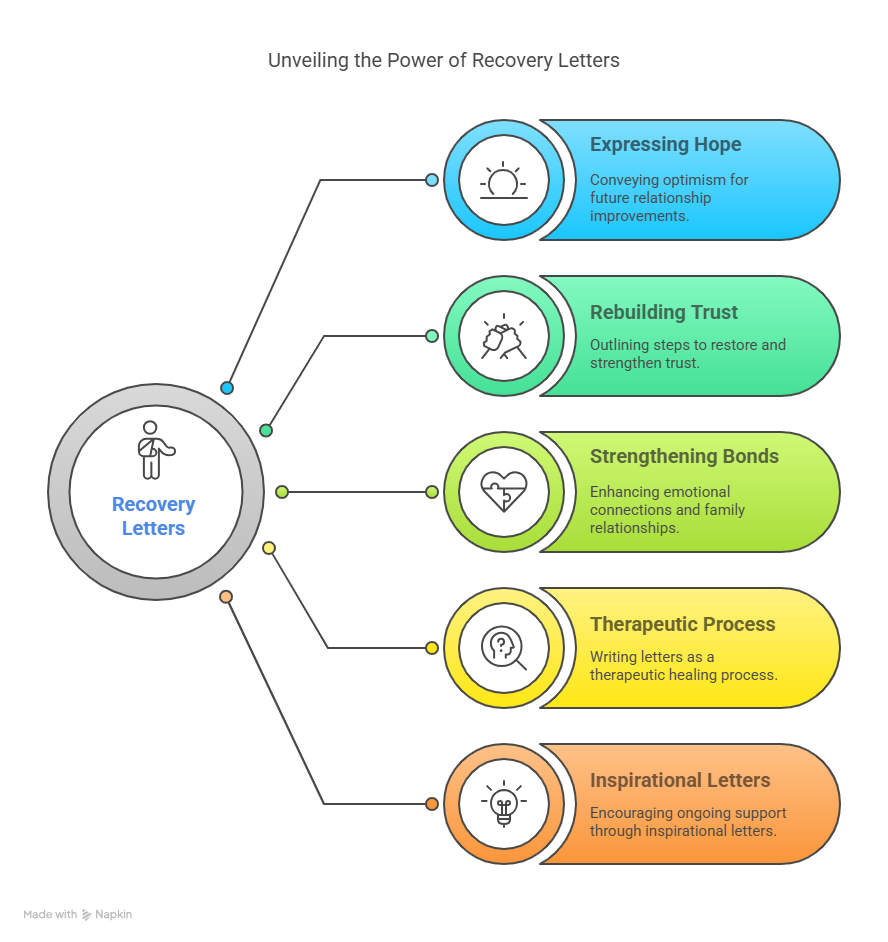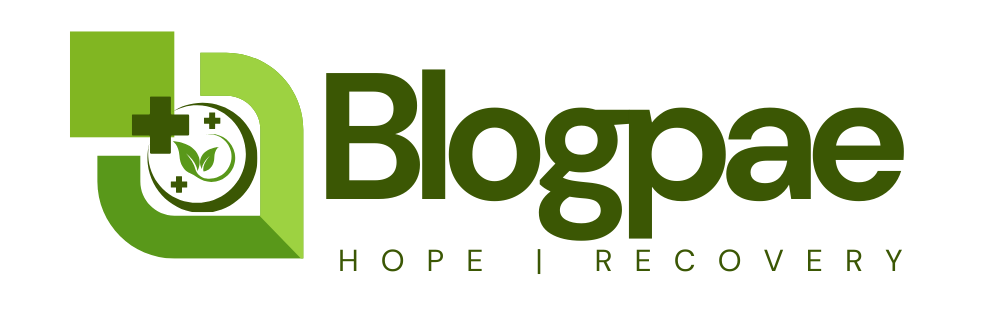Healing from addiction is a journey that not only involves the individual struggling with it but also their loved ones. Effective communication is a crucial step in this process, helping to mend strained relationships and foster a supportive environment.
One powerful way to facilitate this communication is by writing heartfelt letters to family members. This act can be a therapeutic outlet for expressing feelings, apologies, and gratitude, paving the way for healing and rebuilding trust.
By putting thoughts and emotions into words, individuals can begin to repair the damage caused by addiction and work towards a stronger, healthier relationship with their family.
Key Takeaways
- Writing letters can be a therapeutic step in the recovery process.
- Effective communication is key to healing relationships.
- Expressing feelings and apologies can help rebuild trust.
- Heartfelt letters can foster a supportive environment.
- Rebuilding relationships takes time and effort.
The Healing Power of Written Words
In the journey of recovery, writing letters to family can be a therapeutic outlet, fostering a deeper understanding of one’s emotions and experiences. This form of expression allows individuals to communicate their feelings and thoughts in a structured and reflective manner.
Written communication, such as letters, can be particularly effective in situations where verbal conversations may fail due to emotional intensity or complexity. By putting thoughts into words on paper, individuals can convey their messages more clearly and with greater empathy.
Why Letters Work When Conversations Fail
Letters provide a unique opportunity for individuals to express themselves without interruption, allowing for a more thoughtful and considered communication. This can be especially valuable in the context of sober living communication, where clarity and sincerity are paramount.
Creating Space for Reflection and Response
The act of writing letters also creates a space for both the writer and the recipient to reflect on the content and emotions conveyed. This reflective space can facilitate more meaningful and heartfelt messages of support, fostering a deeper connection between family members. Furthermore, letters can serve as a tangible representation of one’s commitment to recovery, echoing the sentiments found in inspirational letters from treatment programs.
The Purpose of Recovery Letters to Family
Recovery letters to family serve as a powerful tool in the healing process, allowing individuals to communicate their progress and feelings effectively. These letters provide a unique opportunity for recovery progress updates that can be both therapeutic and informative.
By putting thoughts and feelings into words, individuals can begin to mend relationships and rebuild trust. This process is crucial for healing and moving forward.
Rebuilding Trust Through Transparency
Transparency is key to rebuilding trust. By being open and honest in recovery letters, individuals can demonstrate their commitment to their recovery journey, fostering a sense of security and understanding among family members.
Expressing Feelings Without Interruption
Written communication allows individuals to express their feelings without interruption, providing a safe space to convey emotions and thoughts. This can be particularly helpful in supportive letters to loved ones, where the goal is to nurture and support the relationship.
Documenting Your Recovery Journey
Recovery letters also serve as a record of progress, documenting the journey and milestones achieved. This can be a powerful reminder of how far one has come, providing motivation and encouragement along the way, much like emotional letters of encouragement.
Preparing to Write Your Recovery Letter
Before putting pen to paper, it’s essential to prepare yourself for the emotional task of writing a recovery letter to your family. This preparation is crucial for making the letter a meaningful step in your recovery journey.
Assessing Your Emotional Readiness
Assessing your emotional readiness is a vital first step. Recovery is a personal journey, and so is writing a letter to your family. It’s about being honest with yourself about your feelings and readiness to reconnect. As Carl Jung once said, “One does not become enlightened by imagining figures of light, but by making the darkness conscious.”
Gathering Thoughts and Insights from Treatment
Gathering your thoughts and insights gained from your treatment can provide valuable content for your letter. Reflect on your journey, noting key milestones and lessons learned. This reflection can help you articulate your progress and intentions clearly.
Setting Realistic Expectations for Responses
It’s also important to set realistic expectations for how your family might respond.
“The greatest glory in living lies not in never falling, but in rising every time we fall.”
– These words by Nelson Mandela remind us that recovery and healing are processes, and responses may vary.
Essential Elements of Effective Recovery Letters
Effective recovery letters to family members are built on a foundation of sincerity and openness. These letters serve as a powerful tool in the recovery process, facilitating heartfelt messages of support and enhancing family communication in recovery. By incorporating certain essential elements, individuals can craft letters that are not only meaningful but also impactful.
Opening with Honesty and Vulnerability
Starting a recovery letter with honesty and vulnerability sets the tone for the rest of the message. It involves being transparent about your struggles and acknowledging the pain you’ve caused. This openness can help create a sense of trust and understanding.
Acknowledging Past Behaviors Without Excuses
A crucial aspect of a recovery letter is acknowledging past behaviors without making excuses. This involves taking responsibility for your actions and showing a willingness to make amends. By doing so, you demonstrate your commitment to change and growth.
Sharing Your Recovery Process and Progress
Sharing the details of your recovery process and the progress you’ve made can be incredibly uplifting for both you and your family. It provides a clear picture of your journey towards healing and can inspire hope. Highlighting milestones and lessons learned during treatment can also reinforce your commitment to recovery.
Expressing Hope for the Future Relationship
Finally, expressing hope for the future relationship is a vital component of a recovery letter. It involves outlining your aspirations for rebuilding trust and strengthening bonds. By conveying your desire for a healthier, more positive relationship, you can begin to mend the past and look forward to a more promising future together.
By incorporating these essential elements, recovery letters can become a powerful catalyst for healing and growth, both for the individual in recovery and their family. The process of writing such a letter can be therapeutic, fostering a deeper understanding and paving the way for more inspirational letters from treatment and ongoing support.

- Be sincere and open in your letter
- Acknowledge past behaviors without excuses
- Share your recovery progress
- Express hope for the future
Writing Techniques That Foster Connection
The art of writing a recovery letter to family involves more than just expressing feelings; it requires a thoughtful approach to reconnect and heal. Effective recovery letters are not just about conveying emotions but also about rebuilding relationships through sober living communication.
To achieve this, several writing techniques can be employed.
Using “I” Statements to Avoid Blame
One effective technique is using “I” statements, which help to express feelings and thoughts without placing blame on others. For instance, saying “I feel hurt when…” rather than “You always…” can significantly reduce defensiveness and promote understanding. This approach is crucial in emotional letters of encouragement, where the goal is to heal and reconnect.
Balancing Accountability with Self-Compassion
Another vital technique is balancing accountability with self-compassion. Acknowledging past mistakes while being kind to oneself helps in creating a supportive letter to loved ones. This balance is essential for fostering a positive and constructive dialogue.
Finding the Right Tone for Your Family Dynamic
Understanding the family dynamic is crucial in determining the right tone for the letter. Whether it’s formal, informal, apologetic, or hopeful, the tone should be tailored to the specific family context. This consideration ensures that the letter is received as intended, facilitating a meaningful connection.
Sample Templates for Different Recovery Situations
Having sample templates for recovery letters can provide a useful starting point for those looking to reconnect with their family. These templates serve as guides, helping individuals tailor their communication to their specific recovery situation.
Early Recovery Introduction Letters
For those in the early stages of recovery, an introduction letter can be a gentle way to inform family members about their journey. This type of letter should acknowledge the challenges ahead and express a commitment to recovery. It sets the tone for open communication and can help manage expectations.
Sobriety Milestone Announcements
Reaching sobriety milestones is a significant achievement, and sharing this news with family can strengthen bonds. A sobriety milestone announcement letter should celebrate the progress made and acknowledge the support received from loved ones. It’s an opportunity to reflect on how far you’ve come and the journey ahead.
Amends-Focused Communications
For many in recovery, making amends is a crucial step. An amends-focused letter provides a structured way to acknowledge past wrongs and express a commitment to change. This type of communication can be challenging but is often necessary for healing and rebuilding trust.
| Template Type | Purpose | Key Elements |
|---|---|---|
| Early Recovery Introduction | Inform family about recovery journey | Acknowledge challenges, commit to recovery |
| Sobriety Milestone Announcement | Celebrate sobriety achievements | Celebrate progress, acknowledge support |
| Amends-Focused | Make amends for past wrongs | Acknowledge past wrongs, commit to change |
These templates can be adapted to fit individual circumstances, providing a foundation for meaningful communication with family during the recovery process.
Conclusion: Nurturing Family Healing One Letter at a Time
Writing recovery letters to family members is a powerful step towards healing and rebuilding relationships. Through supportive letters to loved ones, individuals in recovery can express their feelings, acknowledge past behaviors, and share their progress. Effective family communication in recovery is crucial for nurturing a supportive environment that fosters growth and understanding.
By taking the time to craft thoughtful recovery letters, individuals can create a foundation for meaningful dialogue and reconciliation. This process encourages loved ones to respond and engage in a constructive conversation, ultimately strengthening family bonds.
As you consider your own journey, remember that writing recovery letters to family is a journey of self-reflection and growth. It offers an opportunity to reconnect with loved ones and work towards a more positive, supportive future together.
FAQ
What is the primary purpose of writing recovery letters to family members?
The primary purpose is to facilitate healing, rebuild relationships, and provide a means of communication during the recovery process, allowing for the expression of feelings, acknowledgment of past behaviors, and documentation of progress.
How can written communication be more effective than verbal conversations in difficult situations?
Written communication provides a safe space for reflection and response, allowing both the writer and the recipient to process their emotions and thoughts without the pressure of an immediate response or reaction.
What are some essential elements to include in a recovery letter?
Essential elements include opening with honesty and vulnerability, acknowledging past behaviors without making excuses, sharing the recovery process and progress, and expressing hope for the future relationship.
How can I prepare to write a recovery letter to my family?
To prepare, assess your emotional readiness, gather relevant thoughts and insights from your treatment experiences, and set realistic expectations for how your family members might respond to your letter.
What writing techniques can help foster connection and understanding in recovery letters?
Techniques such as using “I” statements to avoid blame, balancing accountability with self-compassion, and finding the right tone for your family dynamic can help foster connection and promote healing.
Can recovery letters be used to make amends, and if so, how?
Yes, recovery letters can be used to make amends by acknowledging past wrongs, expressing remorse, and outlining steps taken towards recovery and personal growth, which can be a crucial step in rebuilding trust and relationships.
Are there different types of recovery letters for different situations?
Yes, there are different types, including early recovery introduction letters, sobriety milestone announcements, and amends-focused communications, each serving a unique purpose in the recovery journey.
How can recovery letters help in rebuilding trust with family members?
Recovery letters can help rebuild trust by demonstrating transparency, accountability, and a commitment to recovery, providing a clear and honest narrative of one’s journey towards sobriety and personal growth.
Reference




